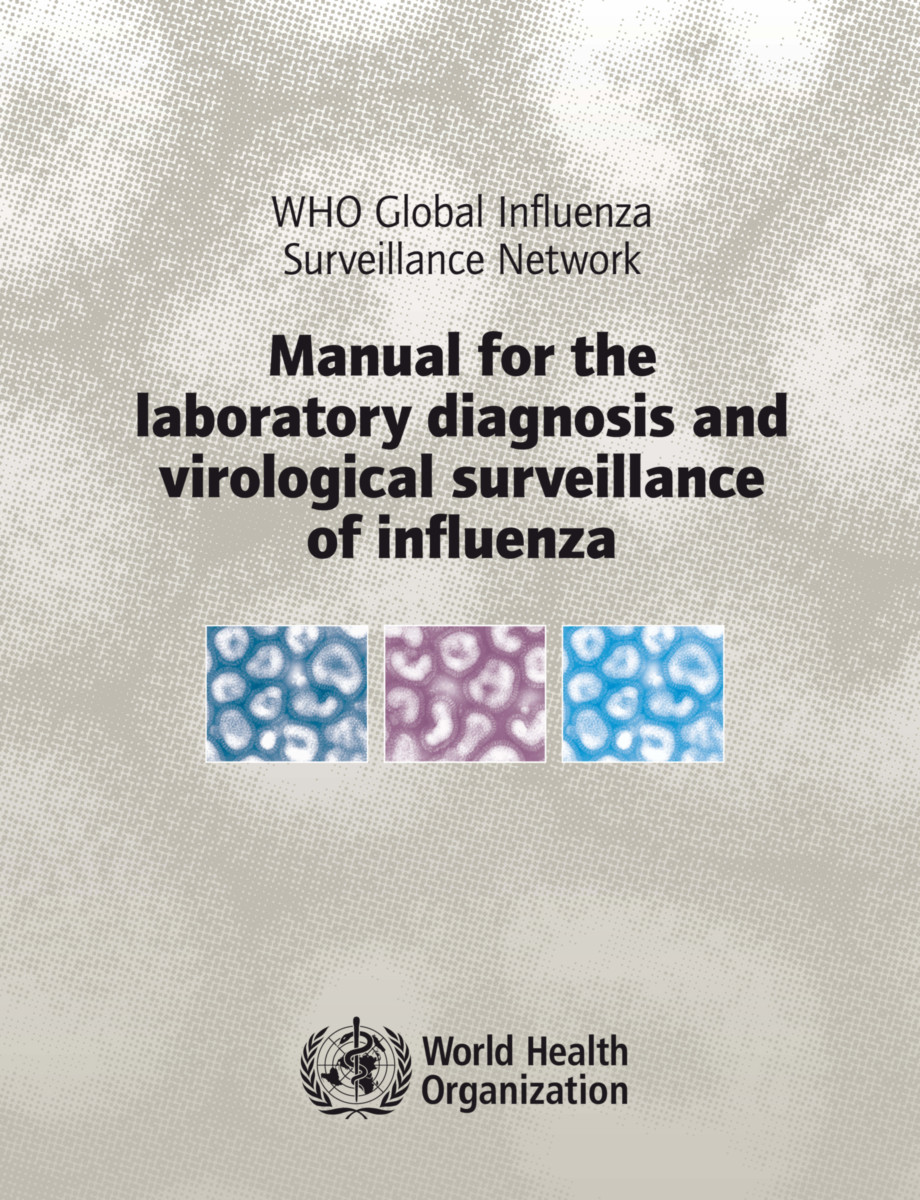Manual for the Laboratory Diagnosis and Virological Surveillance of Influenza
- Publisher
World Health Organization - Published
16th June 2011 - ISBN 9789241548090
- Language English
- Pages 152 pp.
- Size 8.5" x 11"
In many settings influenza is recognized as a major cause of disease and death. In other parts of the world however, its epidemiology and the degree of its impact on human health remain relatively uncertain — in large part due to a lack of virological and disease surveillance.
WHO has developed this manual to strengthen the laboratory diagnosis and virological surveillance of influenza infection by providing standard methods for the collection, detection, isolation and characterization of viruses. The specific objectives of the manual include:
* increasing understanding of the principles and importance of haemagglutination and haemagglutination inhibition (HAI) testing in the identification of influenza virus field isolates, and in serological diagnosis using the WHO Influenza Reagent Kit;
* ensuring HAI test results are analyzed and interpreted accurately by including the appropriate controls and recognizing potential problems in interpreting test results;
* increasing understanding of the principles of reverse transcription polymerase chain reaction (RT-PCR) and its application in the typing and subtyping of influenza viruses;
* highlighting the significance of influenza virus isolation as compared with direct antigen detection;
* increasing understanding of the principles of the microneutralization assay and its application to serological diagnosis;
* increasing understanding of the principles of the neuraminidase inhibition (NAI) assays used in the detection of virus strains resistant to antivirals.
All national and international influenza surveillance systems — including those for monitoring clinical disease — depend fundamentally upon the consistent and successful implementation.
World Health Organization
World Health Organization is a Specialized Agency of the United Nations, charged to act as the world's directing and coordinating authority on questions of human health. It is responsible for providing leadership on global health matters, shaping the health research agenda, setting norms and standards, articulating evidence-based policy options, providing technical support to countries, and monitoring and assessing health trends.


